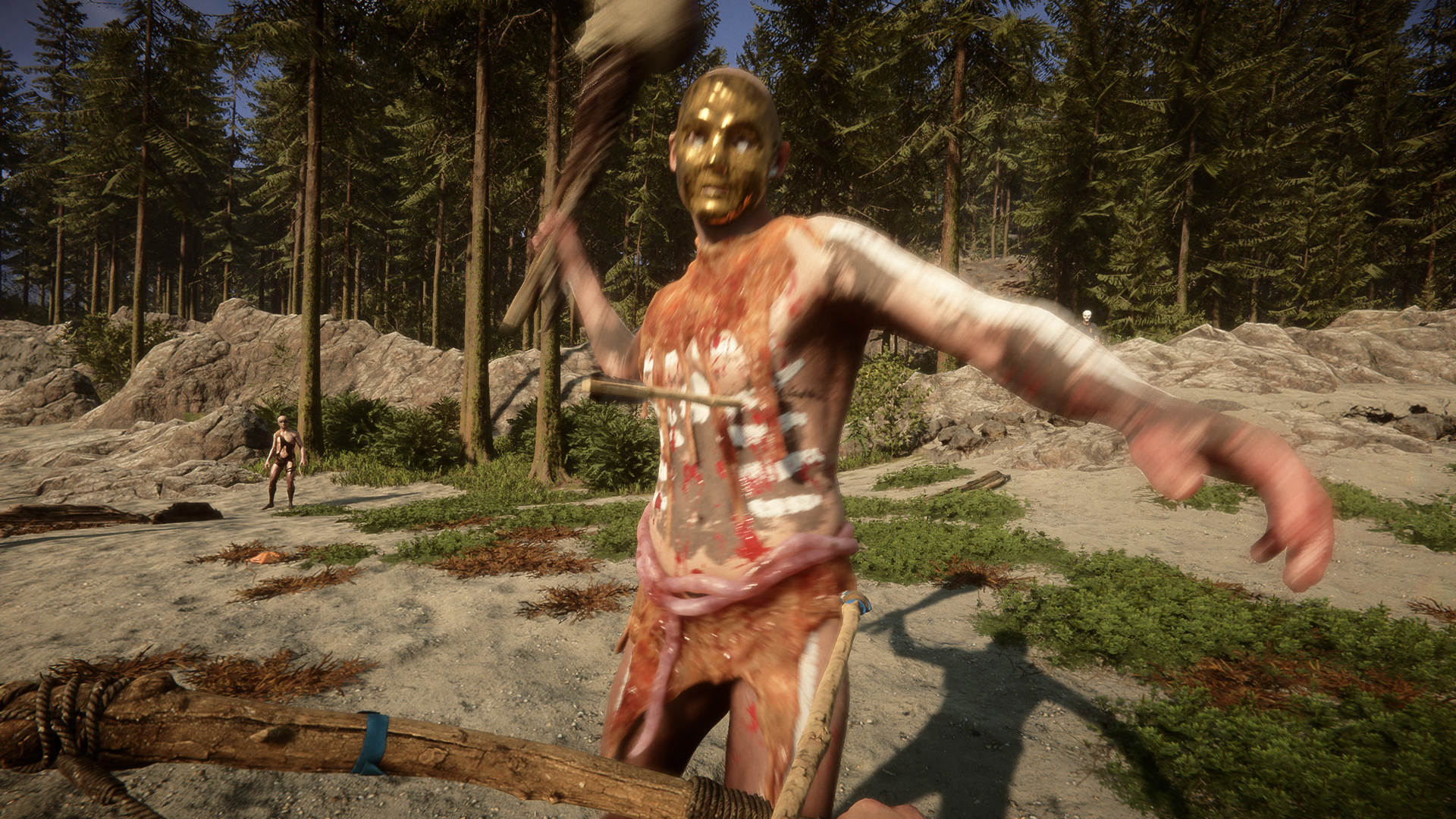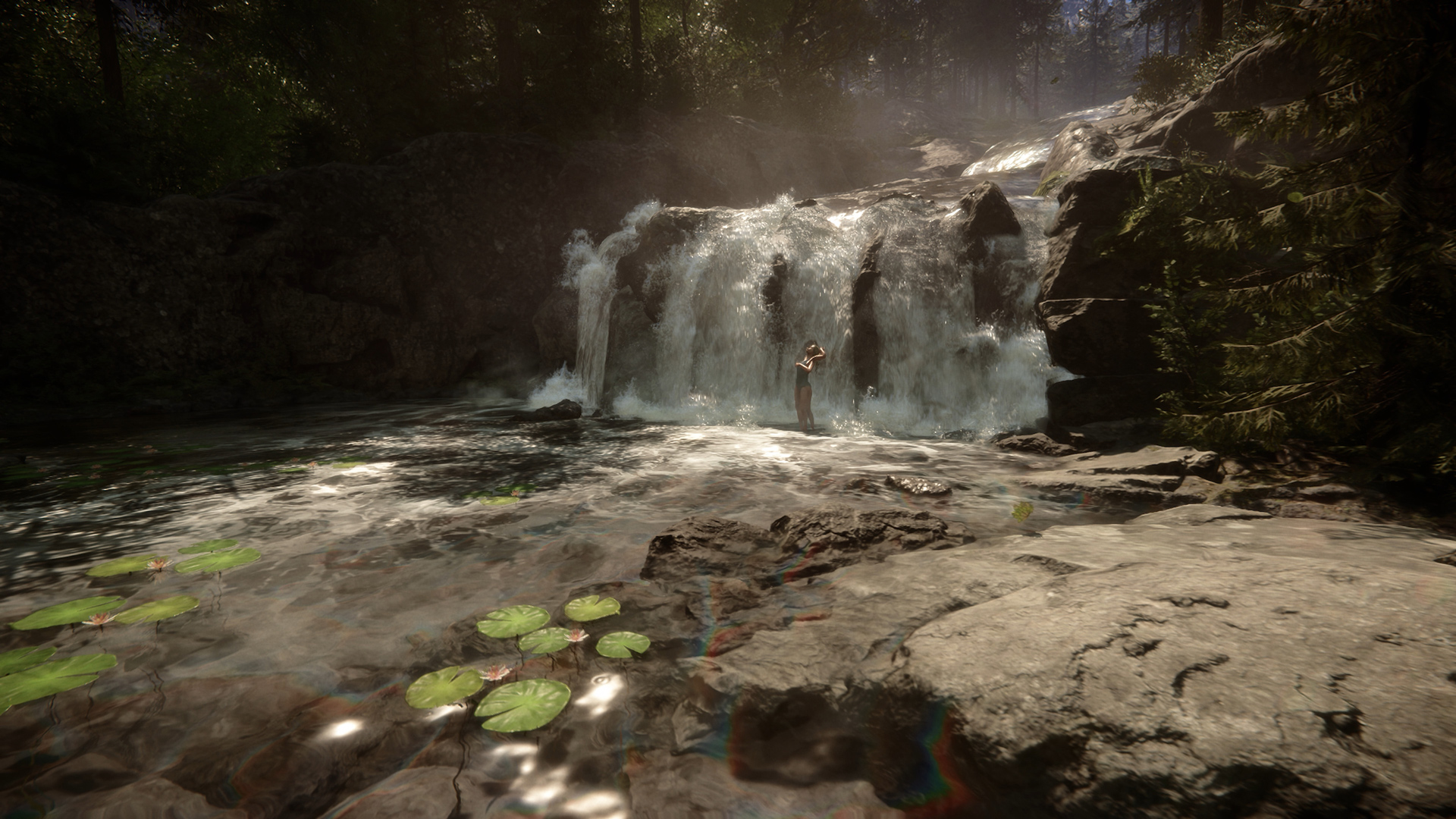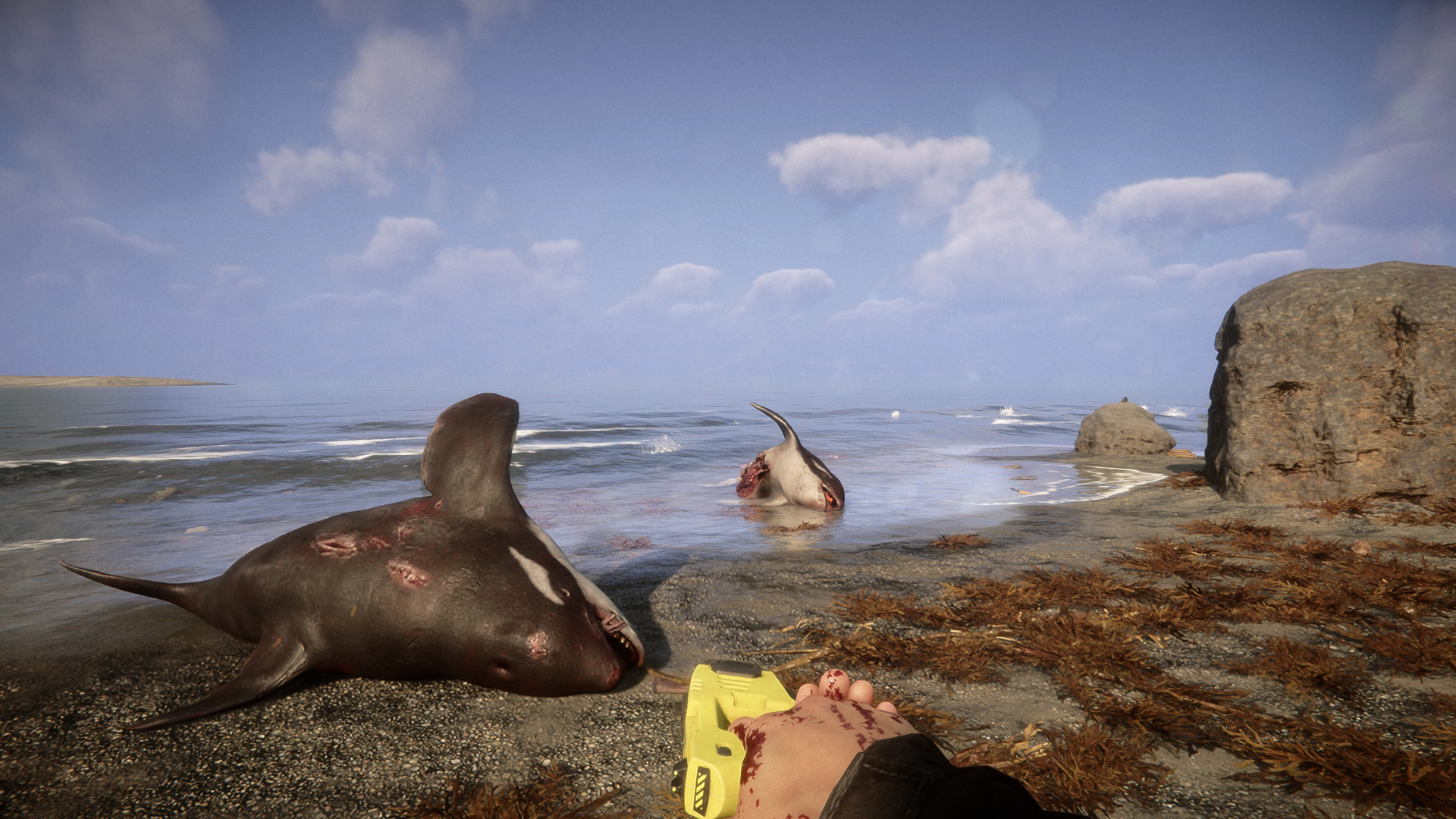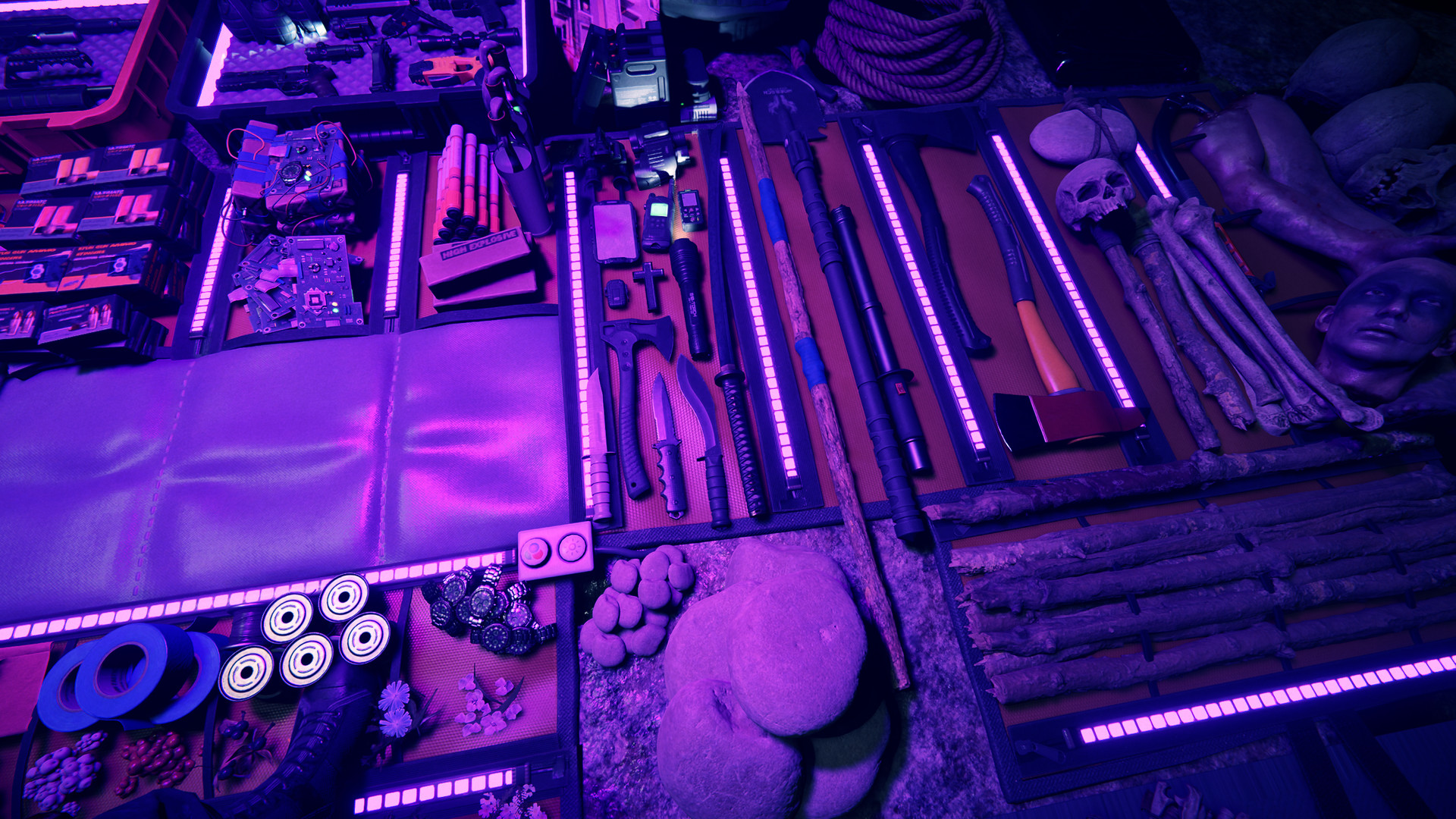More games should follow Sons of the Forest's early access plans
Sons of the Forest switched at the eleventh hour to sidestep another delay - good call?

The video games industry is still reeling from the global pandemic. Even as restrictions ease now across the world, a combination of disrupted work patterns levied by lockdown and quarantine measures, and the physical and mental toll the last few years have taken on developers has resulted in loads of games facing delays. Endnight Games' Sons of the Forest, for example, was originally due in May, 2022, before being pushed to February 23 of this year – and while it's still on course to hit that target, the PC-exclusive title will now do so via Steam's Early Access initiative.
In most cases, game delays are for the best. If a studio needs a little longer to smooth edges of a project they've poured years of work into, how can we begrudge that – especially when the payoff is aimed at us as paying customers on the opposite end. With more time in the oven, more often than not, we receive a better game. But the question stands: if Early Access is an option for certain games, is this a better route in 2023 to avoid pushing games back multiple times?


Sons of the Forest is still coming out in February, but now it's early access
In the case of Sons of the Forest, developer Endnight Games knows what it's doing. Its first game, 2014's The Forest, spent four years in Steam's Early Access program before launching on PC and PS4. It's spent the intervening period being nipped and tucked and tinkered with at the behest of its active community – a process that's seen its concurrent player count rise from 6,000 players on day one back in April 2018, to a record 75,000 in October last year. The Forest, in many ways, epitomized the Early Access boom that defined PC games in the 2010s, and so falling back on a familiar model in order to dodge another delay on the sequel actually makes perfect sense for Endnight.
Given the unprecedented circumstances developers have been faced with over the last few years, though, is this an area other companies should explore with an eye on getting their games out earlier without risking backlash for unfinished products? Many Early Access success stories over the last decade or so have been told by fledgling indies who've built games alongside their communities; or bigger studios with clearly defined, incremental goals projected over a longer period of time. The term 'roadmap' was once scarcely used in relation to game dev, and yet is now commonplace in both the standalone and live-service games that dominate the modern landscape – popularized in part by Kickstarter, and, of course, the framework Early Access provides.

"The term 'roadmap' was once scarcely used in relation to game dev, and yet is now commonplace in both the standalone and live-service games that dominate the modern landscape".
Ubisoft's open-world Avatar adventure, Avatar: Frontiers of Pandora, is a game surely cut out for Early Access – especially given it was expected to launch alongside the theatrical sequel, Avatar: The Way of Water, last December. It didn't, and is now expected at some point this year with another slip into 2024 not beyond the realms of possibility. Sega's Company of Heroes 3 is another long-awaited game that would also fit the mold with its sprawling, multi-mission campaign and online multiplayer design in mind. Given the hardships GSC Game World has faced in recent times – both as a result of the pandemic, but also namely the Russo-Ukrainian War which has forced the studio to relocate to the Czech Republic – perhaps Early Access would have helped the devs stabilize in the face of adversity while making Stalker 2: Heart of Chornobyl. And with Ubi's beleaguered Skull and Bones, maybe just showing us something tangible at this point is better than countless pushbacks.
The likes of Zelda: Tears of the Kingdom, Starfield, Redfall and Hogwarts Legacy – all of these projects are big enough to shoulder the weight of expectation among excited and, often, impatient players. But using the latter as an example, if certain key parts of this game's wizarding world are still undercooked, maybe an Early Access launch would have helped polish those imperfections over time, a la Disney's Dreamlight Valley. For more contained games – the likes of Rocksteady's Suicide Squad: Kill the Justice League, or ambitious creative undertakings such as Oxenfree 2 – delays probably make more sense, whereas Kerbal Space Program 2 clearly understands what helped make the first game so successful, and is returning to the Early Access well for its sequel.
All of which makes Endnight Games' pivot to Early Access at the eleventh hour quite unique. Sons of the Forest builds on the success of its forerunner, and in doing so already has the support of several millions of players before kicking a ball/cannibal's skull. Which is, of course, a great position to be in. In this instance, sticking to the plan and launching in full at the end of February would have worked. But by switching back to Early Access to avoid upsetting those supporters for a second time this side of launch, I think Endnight has played a great hand. After so many delays over the last three or so years across the board, I wouldn't be surprised if others follow suit.
Sign up to the GamesRadar+ Newsletter
Weekly digests, tales from the communities you love, and more
Sons of the Forest is a horror survival game. Here are some more of the best horror games going

Joe Donnelly is a sports editor from Glasgow and former features editor at GamesRadar+. A mental health advocate, Joe has written about video games and mental health for The Guardian, New Statesman, VICE, PC Gamer and many more, and believes the interactive nature of video games makes them uniquely placed to educate and inform. His book Checkpoint considers the complex intersections of video games and mental health, and was shortlisted for Scotland's National Book of the Year for non-fiction in 2021. As familiar with the streets of Los Santos as he is the west of Scotland, Joe can often be found living his best and worst lives in GTA Online and its PC role-playing scene.


